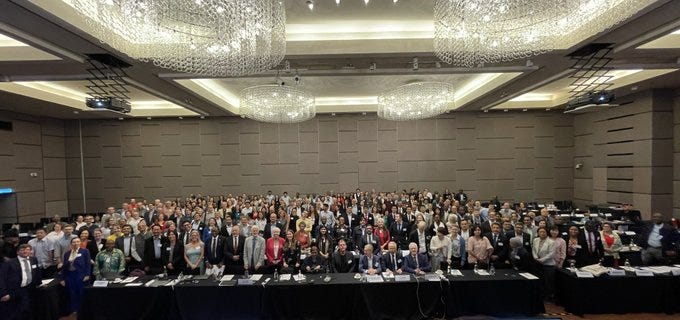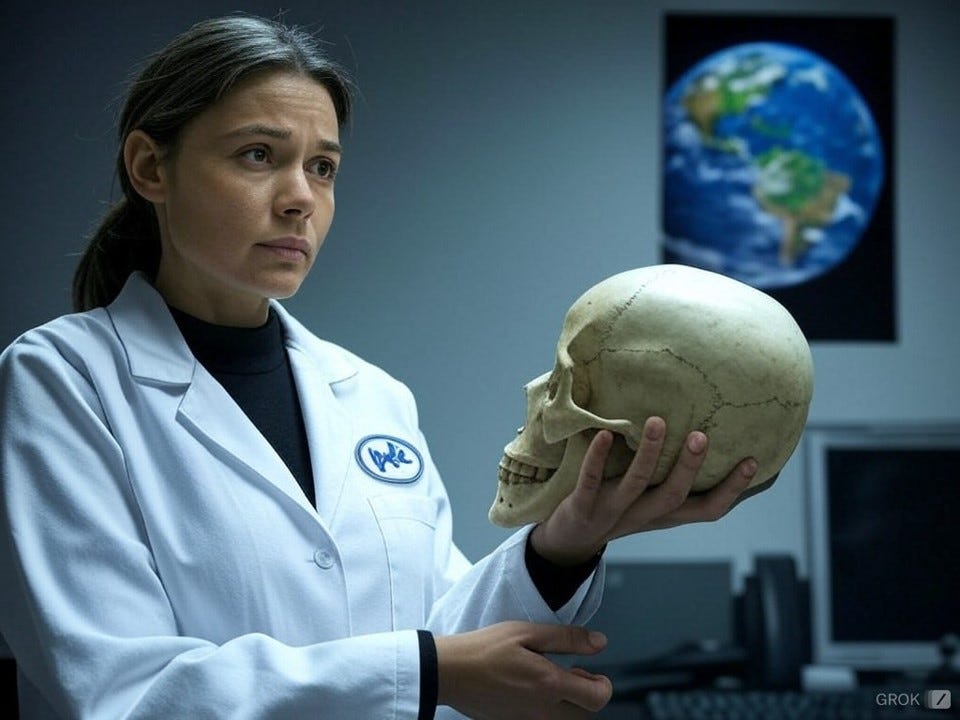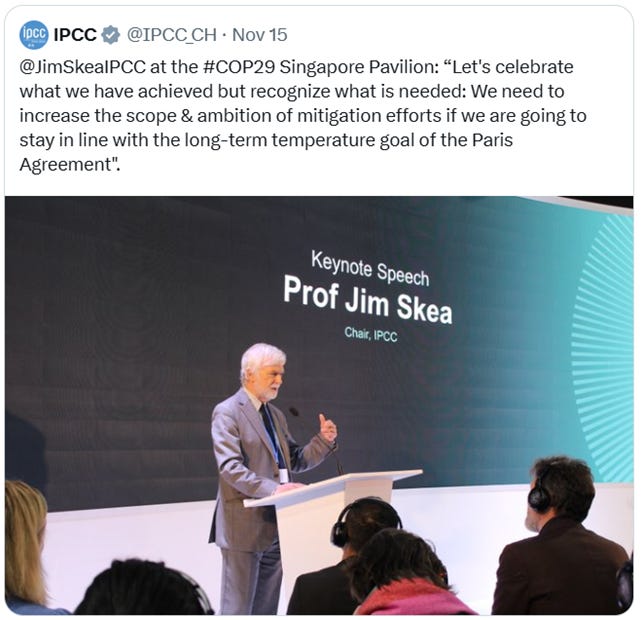This week in Kuala Lumpur, Malaysia more than 230 people are meeting to scope out the next assessment report of the Intergovernmental Panel on Climate Change (IPCC). The IPCC, an organization under the World Meteorological Organization and U.N. Environment Program, is important — I often say that if it did not exist it would need to be invented.
Scientific assessments help policy makers and the public to better understand what is known, what is unknown, and degrees of agreement or disagreement among experts on various knowledge claims relevant to decision making. Scientific assessments are not once-and-for-all arbiters of truth, but a snapshot in time of what relevant experts think. Over time, knowledge in any assessment is subject to updating, revision, and, sometimes, even overturning.
As the IPCC maps out its next assessment report — its seventh — it stands at a critical juncture. The organization’s legitimacy rests in its longstanding mandate to call things straight. However, the IPCC appears to be increasingly moving more towards overt climate advocacy, putting at risk public and policy maker confidence in its work.

The IPCC characterizes its purpose as follows:
The role of the IPCC is to assess on a comprehensive, objective, open and transparent basis the scientific, technical and socio-economic information relevant to understanding the scientific basis of risk of human-induced climate change, its potential impacts and options for adaptation and mitigation.
The IPCC “concentrates” its assessment work in support of implementation of the U.N Framework Convention on Climate Change (UNFCCC). The IPCC also commits to avoiding advocacy for specific policies under the UNFCCC:
IPCC reports should be neutral with respect to policy, although they may need to deal objectively with scientific, technical and socio-economic factors relevant to the application of particular policies.
The IPCC is supposed to engage various and differing points of view on climate science and policy.
It is important that Reports describe different (possibly controversial) scientific, technical, and socio-economic views on a subject, particularly if they are relevant to the policy debate.1
The IPCC sustains trust by meeting this mandate which also is an approach that best informs decision makers, who when making decisions necessarily must consider aspects of policy and politics that go well beyond climate change. The IPCC does not exist to tell policy makers what they should do.
However, there are many signs that the IPCC is departing from its mandate.
For instance, at COP-29 in Baku, Azerbaijan, remarks by IPCC chair Jim Skea focused entirely on climate advocacy:
I want to focus most of my remarks on the opportunities – and indeed the benefits – of near-term action. But first, a few words on urgency.
It is not within the IPCC’s mandate to call for action or to implore urgency. There are plenty of groups who play that role — There is only one IPCC.
Skea’s comments, speaking for the IPCC, go much further than simple exhortation, such as when he promotes specific energy technologies:
Within energy, by far the largest potential lies with renewable energy, particularly wind and solar . . .
Rather than championing specific technologies, a neutral IPCC would instead share with decision makers comprehensive perspectives on energy technology alternatives — including wind and solar, but also, nuclear, geothermal, natural gas, carbon capture, and so on. As THB readers know well, there is a healthy disagreement among relevant experts on technological opportunities for accelerated decarbonization.
Skea also calls for countries to express specific policy commitments:
Given that methane is a particularly potent greenhouse gas, sign-up to the Global Methane Pledge could bring rapid results in terms of avoided warming in the near-term.
Signing up to the Global Methane Pledge may or may not be a good idea, but it is not for the IPCC to play the role of a promotional champion for sign-ups.
We can also see the IPCC is increasingly moving in the direction of climate advocacy in its public relations. Consider its press release announcing this week’s scoping meeting:
The Sixth Assessment Report clearly stated that in 2020 global warming reached 1.1°C, above pre-industrial level, driven by more than a century of burning fossil fuels as well as unequal and unsustainable energy and land use. This has resulted in more frequent and more intense extreme weather events that have caused increasingly dangerous impacts on nature and people in every region of the world. Impacts are expected to intensify with every fraction of additional warming, particularly for the most vulnerable communities, accounting for 3.3 – 3.6 billion people. This report underlined the urgency of transformative adaptation and immediate emissions reductions. It also noted that there are tools, such as renewable energy, and options across all sectors to limit warming to 1.5°C, but that progress needs to accelerate as the chances of achieving that goal are becoming increasingly thin.
This paragraph reads like boilerplate from any garden-variety climate advocacy group, and not what one would expect from a leading international scientific assessment. In fact, this paragraph arguably misrepresents what the IPCC AR6 actually concluded on extreme weather, danger, and the impacts of fractional warming. Few experts actually believe that the 1.5°C target is even achievable.
Imagine if a federal statistical agency promoted the president’s policies with every unemployment report or weather forecast. There is a division of responsibility between those who assess and those who use assessments to promote their favored political means and ends. When we confuse these roles we risk the actual or perceived integrity of assessment.
What would a “neutral” IPCC look like?
On empirical questions, that would mean serving as a science arbiter. That would mean identifying questions of policy makers that can be addressed using the tools of science — Typically these are questions of trend, causality, and projection. For instance, how have extreme weather events changed over climate time scales? WHy have they changed (or not)? And what do we expect in the future? A key here is to ensure that the scientific assessment is indeed responsive to policy makers needs.
On policy questions, neutrality is best served by serving as an honest broker. That would mean clarifying (and even expanding) the scope of choice available to decision makers — along with a comprehensive view on costs, benefits, opportunities, and obstacles associated with different possible courses of action. In honest brokering, consideration of different views is a necessity.
In my judgment, in the most recent IPCC assessment (its sixth), its Working Group 1 (physical science), in my areas of expertise largely stuck to the criteria of the IPCC mandate.2 However, Working Group 2 often slipped into a troubling degree of overt climate advocacy, and Working Group 3 showed evidence of capture by a relatively narrow group of experts.
As it looks to its seventh assessment report the IPCC should recommit to its mandate, focus like a laser on scientific assessment, and leave the advocacy to others. The IPCC should remind participants and administrators that the IPCC has a very specific and special mandate. There are countless climate advocacy groups that people can join to promote this or that preferred technology, policy, or climate action in general.
The legitimacy of the IPCC makes it a tempting target to try to repurpose for advocacy. Maintaining legitimacy requires that the IPCC strongly resist being coopted. Including a diversity of voices and perspectives in its work is part of the IPCC’s mandate and offers the additional benefit of protecting the organization from political capture.
The easiest thing you can do to support THB is to click that “♡ Like”. More likes mean the higher this post rises in Substack feeds and then THB gets in front of more readers!
Thanks for reading! Next week, look out for Part 4 in the series, Politicization of the American University.
It is not the focus of this post, but the IPCC has in general done a very poor job with respect to discussing and including differing views. Not all of this has to do with the hot politics of climate and energy. For instance, the IPCC often has a problem with excessive self-citation by its authors, which results in a misrepresentation the broader literature that they are supposed to be assessing.
Here I say “largely” as there are some exceptions.







You are being too kind….
The UN and its IPCC is a total danger to civilization and the population at large.
They have turned a long range economically planned journey to new cleaner energy sources in concert with global prosperity, into an expensive and prosperity damaging panic that has created unneeded fear of the future into our young people, and created a completely insane religious fanaticism with those easily led and prone to acts of irresponsible activism.
The political side of the UN and IPCC is plain irresponsible and clearly with an agenda to further the global world order that is not in anyone’s best interest. They don’t reflect the scientific report findings unless it feeds the sensationalism that is grabbed by a press desperate to stay relevant in a world moving to self information gathering.
Further, even the IPCC scientific findings are subjugated by political bias (and even outright lies) due to a funding frenzy that has created a wasteful climate emergency industrial complex with every snout into the money trough and many fortunes being made. Just too many scietists acting like climate emergency activists to get to the truth with much realigning of the data and reports to suite the emergency rhetoric.
This subjugation has even extended to the traditional scientific peer review process that is now proving untrustworthy to be believable and relevant.
There are other scientific group playing counterpoint and are what would be called Climate realists..
The Clintel organization has done a fair review of the IPCC report and has an excellent video that defines the issues included below..
https://nigelsouthway.substack.com/p/no-netzero
https://clintel.org/the-frozen-climate-views-of-the-ipcc/
In government, when decisions become politicized they invariably lead to suboptimal decisions and outcomes. Politicized Science will generate the same result. Worse, Science will increasingly be dismissed as advocacy, and lose credibility with the broader public. I can’t imagine any true scientist being in favor of this.